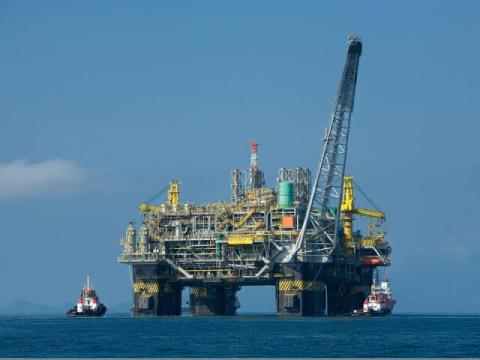
Since the bag was confiscated over three years ago, prosecutors in Geneva Switzerland have been reviewing its content to decide what can be shared with Italian authorities.

The federal tribunal sitting in Lausanne Switzerland, in a ruling on Monday gave permission for the content of convicted Nigerian Emeka Obi’s suitcase to be transmitted to Italian prosecutors.
Obi, who was convicted in September 2018 with Italian native Gianluka Di Nardo, were accused of serving as middlemen in the controversial sale of Oil Prospecting License (OPL 245) to oil multinationals Royal Dutch Shell and Eni in 2011.
The Swiss court said the case did not fall within the narrow scope of permissible appeals to the Lausanne-based tribunal.
Reuters reports the Swiss court as saying that the case did not fall within the narrow scope of permissible appeals to the tribunal. Since the bag was confiscated over three years ago, prosecutors in Geneva Switzerland have been reviewing its content to decide what can be shared with Italian authorities.
This is the second time Obi is trying to prevent the items in the fated bag which include, documents, an external hard drive, several international passports, and USB keys from being made available to inquisitors. The court turned down an appeal by Obi to prevent his suitcase from being unsealed in 2018. It concluded at the time that the information in the seized content could have “potential pertinence in the criminal investigation and the sealing could be lifted without violating Swiss law.”
Obi brought the Swiss case to keep the content of the suitcase which was seized in Geneva in April 2016 in an unrelated inquiry, in order to prevent its content from being shared with investigators.
The federal government under Goodluck Jonathan had in 2011 brokered a deal between carton company Malabu Oil and Gas LTD, Shell, Eni and its Nigerian subsidiearies. The deal saw the Nigerian government set-up an account to receive payments of up to $1.3 billion fromm Shell and Eni on behalf of Malabu, whose front at the time was former petroleum minister under Abacha, dan Etete.
An estimated $1.1bn of the fund is said to have been distributed among top political officials, middlemen like Obi and Di Nardo, as well as Shell and Eni top shots.
Etete had created Malabu in 1998 for the Abacha family, while still serving as minister. He had used an alias to register his name in the company’s records. Despite this knowledge, which the then Attorney General of the federation Mohammed Adoke, claims not to have known, the deal was facilitated.
Since the agreement, however, suits have been filed against the deal across at list three countries — Nigeria, the Netherlands and the most active trial, in Milan Italy. Obi and Di Nardo are the only two persons that have been convicted so far. Both were handed four-year sentences.
The Milan judge has however ruled that Shell and Eni knew the proceeds of the purchase will be paid out to Nigerian politicians.